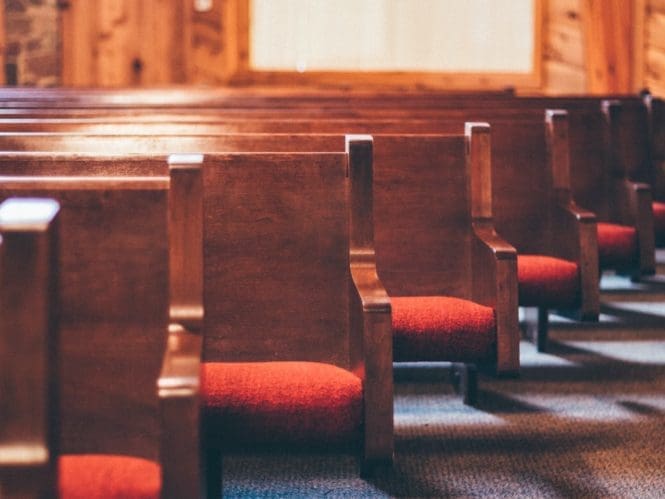American society is abandoning religion at an unbelievable pace. Anyone who takes a cursory look at the statistics can tell you that’s the case. The non-religious are now ~30% of American adults. Among Generation Z, it’s probably closer to 45%.
Today, only a quarter of Americans attend religious services. The synagogues, mosques, and churches are emptying out.
But here’s the thing – not everyone is leaving religion because they hate religion. That’s actually one of the key points of a new book by Ryan Burge, Michael Graham and Jim Davis, called The Great Dechurching.
Indeed, many quit attending their house of worship for very mundane reasons. These reasons include moving, getting married, starting a new job. As Burge reports, many of the dechurched hold remarkably orthodox views.
Before we go further, that underscores a massive problem in the Episcopal Church. Far too many bishops, standing committee members, clergy and other so-called leaders take a “come and hear” view of the church. So what would happen if we picked up the phone when someone leaves and asked, “Hey, how’re you doing? Haven’t seen you in a while.”
And to be clear: It’s not like the church has much to lose. As things stand, it’s circling the drain. And yes, we might get responses we don’t like, but no one said being a Christian would be all sunlight and Chardonnay.
Back to the numbers.
Two different public opinion surveys ask the same question every year: does organized religion cause more problems than it solves?
In 2008, 35 percent of Americans said yes. Eleven years later, in 2019, the number remained unchanged at 35 percent. Thus, even as we see the Great Dechurching, views toward religion aren’t changing much. Not at all what we’d expect.
In fact, during that time, the percentage of people who completely agreed with that statement dropped by 4 points. In other words, even as churches empty out, their reputation is better than before.
Why is that? There’s no data that will answer that question. But our hunch is that the shift in people who completely agree reflects that fewer people are in church. Thus, fewer people leave due to conflict or other bad experiences–the type of conduct that causes strong feelings about the value of organized religion.
And while it’s not a clear correlation, there’s some evidence to support this conclusion. Specifically, the Gallup poll shows that confidence in religion, which until 1985 was the highest category in the poll, sank to record lows last year. This year, confidence edged up just a little as confidence in other American institutions declined.
We don’t find these lows for religion to be surprising. Gone are the days when “just trust us” worked. Americans expect accountability. Yet the church is, in many ways, among the least accountable organizations in society. Shielded from many forms of legal accountability by the First Amendment and the Abstention Doctrine, in which courts won’t interfere with church decisions, the church is unable to police itself.
Making matters worse is the church’s semi-hysterical approach to criticism, in which critics are labelled “unhinged,” “unbalanced,” “dysfunctional,” and “domestic terrorists.” This behavior makes clear that there is a high percentage of narcissists and folks with anti-social personality issues among Episcopal clergy.
Of course, in all these situations, it’s important to remember that the opposite of love isn’t hate.
Nor is the opposite of love criticism, even when vigorous.
The opposite of love is indifference. And unfortunately, we see burgeoning swathes of America that couldn’t care less about the Episcopal Church–even when record numbers of Americans are “up for grabs” regarding religious affiliation.
Sad.


A big reason for decline is asshats like this Joseph character. Folks see this blind clericalism and the inane comments and head for the hills.